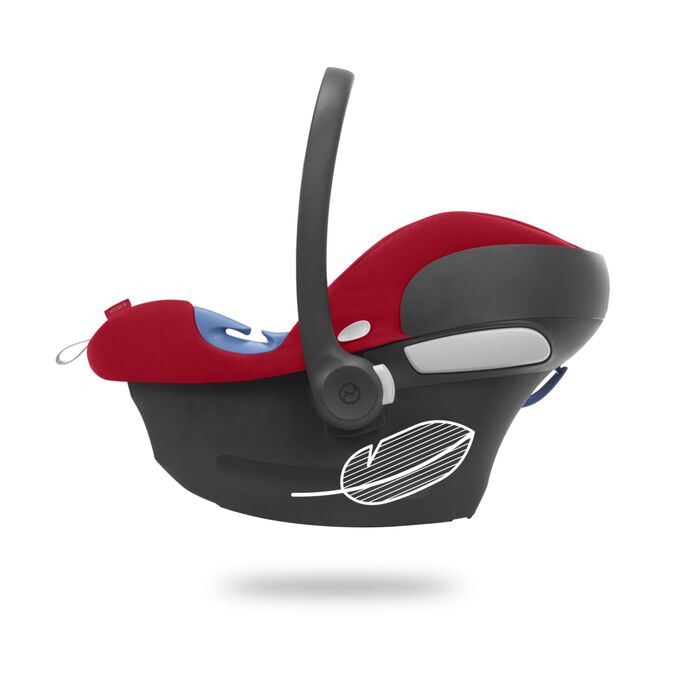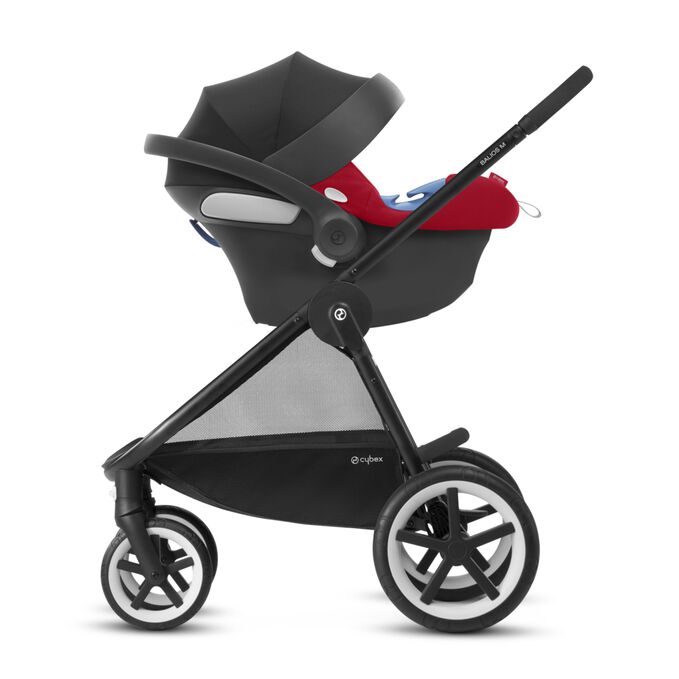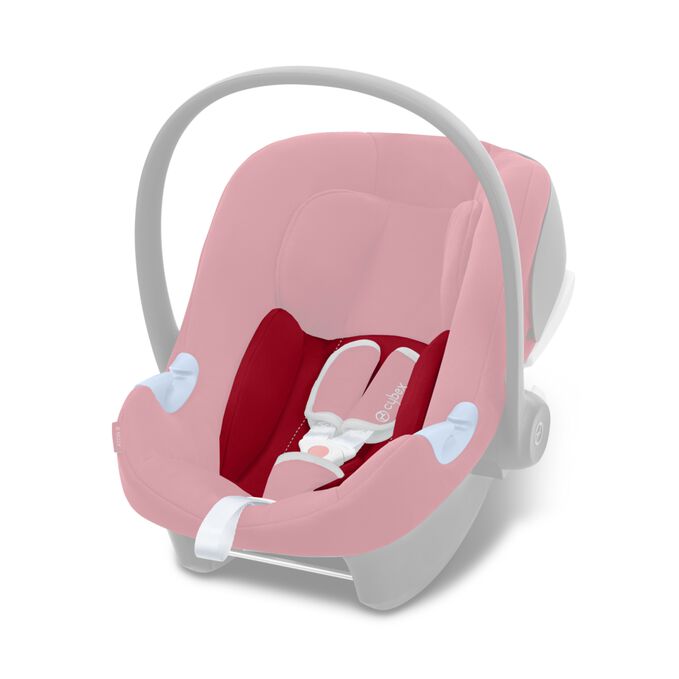Aton B i-Size
- Age max. 2 yrs
- Weight max. 13 kg
- 45 - 87 cm
- Age max. 2 yrs
- Weight max. 13 kg
- 45 - 87 cm
520003983 (Dynamic Red)
Product Details
All-round safety
An XXL UPF50+ sun canopy supplies shade and a height-adjustable headrest can be customized to fit your growing child. Linear Side-impact Protection safeguards in the event of side collisions, and additional safety and stability is provided by the Base M - also compatible with the Sirona M2 i-Size when baby gets older. Easy to handle outside the car, it weighs just 3.9 kg and can be attached to any CYBEX or gb stroller. Ready for action from day one, the car seat’s removable newborn inlay lets even the tiniest passengers lie in an ergonomically improved position.
Specifications:
- UN R129
- Weight: Max. 13 kg
- Height: 45 cm - 87 cm
- Age: From birth up to approx. 24 months
Care instructions:
- Fabric covers machine washable at 30°
Compatible with:
- Base M
- Snogga Mini 2
- Summer cover
- Sun Shade
- Insect Net
- Rain Cover
- Footmuff
- ISOFIX guides
- SensorSafe 4-in-1 Kit
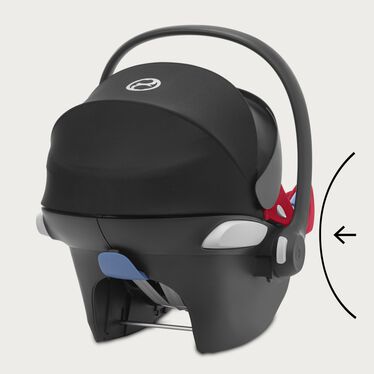
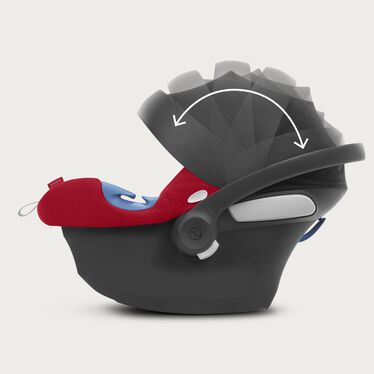
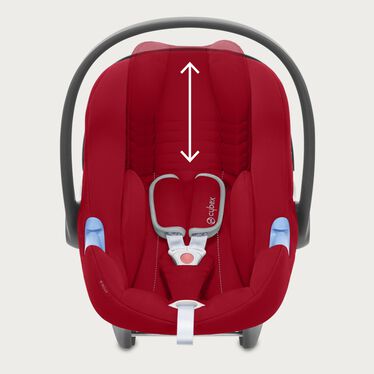
Measurements
- Length
- 660 mm
- Width
- 440 mm
- Height
- 565 mm
- Weight
- 3.9 kg

What is included?
- Aton B i-Size Infant car seat
- Newborn Inlay
- User Guide
Please check your vehicle user guide for more details.
Hint: Cars with i-Size vehicle seats might not be included in this tool.
editorial-content-downloads-title
How do I know if my car seat is suitable for an aircraft?
How do car seats receive a TÜV Rheinland approval?
Will the car seat fit in my vehicle?
How do I know when my child needs to change to the next car seat?
Can I also use the infant car seat without the base?
Is it ok to keep using a car seat after an accident?
My car seat is faulty, how can I get it repaired?
Where can I get replacement parts for my product?
When should I remove the newborn inlay?
How do I correctly secure my child in the seat?
Can I wash the newborn inlay and car seat cover in the washing machine?
Can I also use the infant car seat in a car without ISOFIX anchorage points?
How can I clean my car seat?
When I install the car seat using the vehicle belt, my baby’s head nods forward onto his/her chest even though the seat appears to be positioned horizontally. How can I prevent this?
Can I install a rear-facing seat on the front passenger seat?
How should the headrest be adjusted?
Can I use the car seat on laterally-facing vehicle seats?
Can I use the car seat on rear-facing vehicle benches (e.g. in vans or minibuses)?
Can I also use this infant car seat on a vehicle seat without an i-Size certification?
Can I install this infant car seat on the front passenger seat?
Where should I install a car seat in my car?
Can I use the car seat even when the side airbag is activated?
Do I have to register my car seat with the airline before taking it on a flight?
What should I consider before flying with an infant?
Am I required to take my own car seat on the flight?
Where can I find additional information on flying with an infant?
The car seat is approved in compliance with the i-Size standard (UN R129). What does this mean?
What's the difference between UN R44 and UN R129?
When does a car seat expire?
Can my child sit in a forward-facing position in the car seat?
Can I leave my child in the infant car seat outside the car, for example at home?
What kind of clothing should my child wear when seated in the car seat?
When will a child grow out of this infant car seat?
Do I need a newborn inlay for a car seat?
Warranty Claims
If you need to claim your warranty, please contact the original retailer where you purchased your CYBEX product.
If you purchased your product directly from the CYBEX Online Shop, please use our Contact Form to get in touch with us.
Spare Parts (outside Warranty)
If you are looking for spare parts and your product is no longer under warranty, please contact any authorized CYBEX retailer in your area. You can find one using our Store Locator.
Not sure if you're still under warranty? In that case, feel free to contact us – we're happy to help.
-
Didn’t help
-
Perfect
Rate with a smile – we’re always looking to improve. Your feedback makes all the difference.




